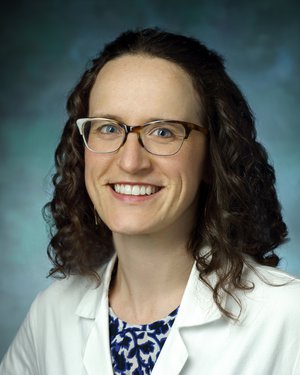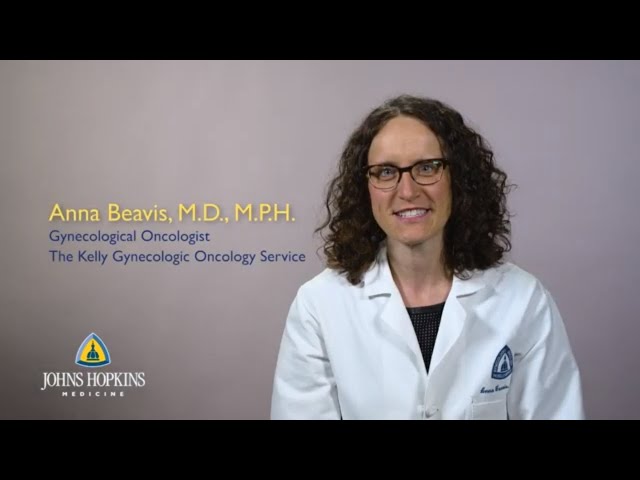Background
Dr. Anna Beavis is an assistant professor in the Johns Hopkins Medicine Department of Gynecology and Obstetrics. She has extensive training in minimally invasive laparoscopic techniques, robotic surgery and radical oncologic surgery to address women’s gynecologic cancers. She is particularly interested in the prevention, early detection and treatment of endometrial and cervical cancer, as well as HPV-related precancers of the vulva and vagina.
Dr. Beavis received her undergraduate degree in biology from Cornell University. She earned her medical degree from the Keck School of Medicine at the University of Southern California, and subsequently completed her residency training in obstetrics and gynecology at the David Geffen School of Medicine at UCLA. Dr. Beavis then completed the rigorous three-year F. J. Montz Gynecologic Oncology fellowship at Johns Hopkins Hospital, during which she earned a Masters in Public Health at the Johns Hopkins Bloomberg School of Public Health.
Dr. Beavis’ primary research focus is endometrial cancer screening and prevention. She received the prestigious BIRCWH (Building Interdisciplinary Research Careers in Women’s Health) grant award to evaluate the utility and acceptability of a novel endometrial cancer screening technique using PapSEEK technology developed by Dr. Bert Vogelstein.
Her other research interests include identifying and addressing cancer care disparities, uptake of the HPV vaccine and modifiable risk factors associated with gynecologic cancer, on which she has co-authored multiple articles. She is frequently sought by the media — including Vice, Consumer Reports and The Hill — for her expertise and research on HPV vaccine uptake. Her research on cervical cancer disparities conducted with Dr. Anne Rositch at the Bloomberg School of Public Health received national attention and was highlighted in The New York Times and on Good Morning America.
Dr. Beavis is passionate about caring for the whole patient and the ways cancer can affect their lives — from diagnosis, surgical and chemotherapeutic treatment, to the psychosocial and often sexual effects experienced by gynecologic cancer survivors. She is eager to engage in shared decision-making with her patients and their loved ones at each step of their cancer treatment and survival.



Patient Ratings & Comments
The Patient Rating score is an average of all responses to physician related questions on the national CG-CAHPS Medical Practice patient experience survey through Press Ganey. Responses are measured on a scale of 1 to 5, with 5 being the best score. Comments are also gathered from our CG-CAHPS Medical Practice Survey through Press Ganey and displayed in their entirety. Patients are de-identified for confidentiality and patient privacy.